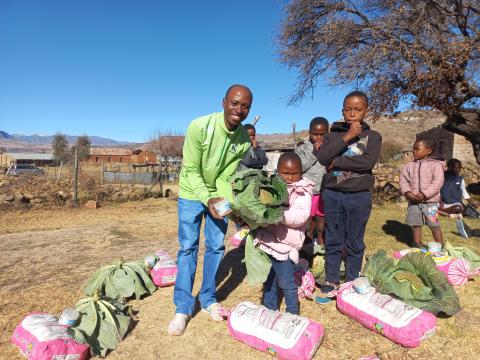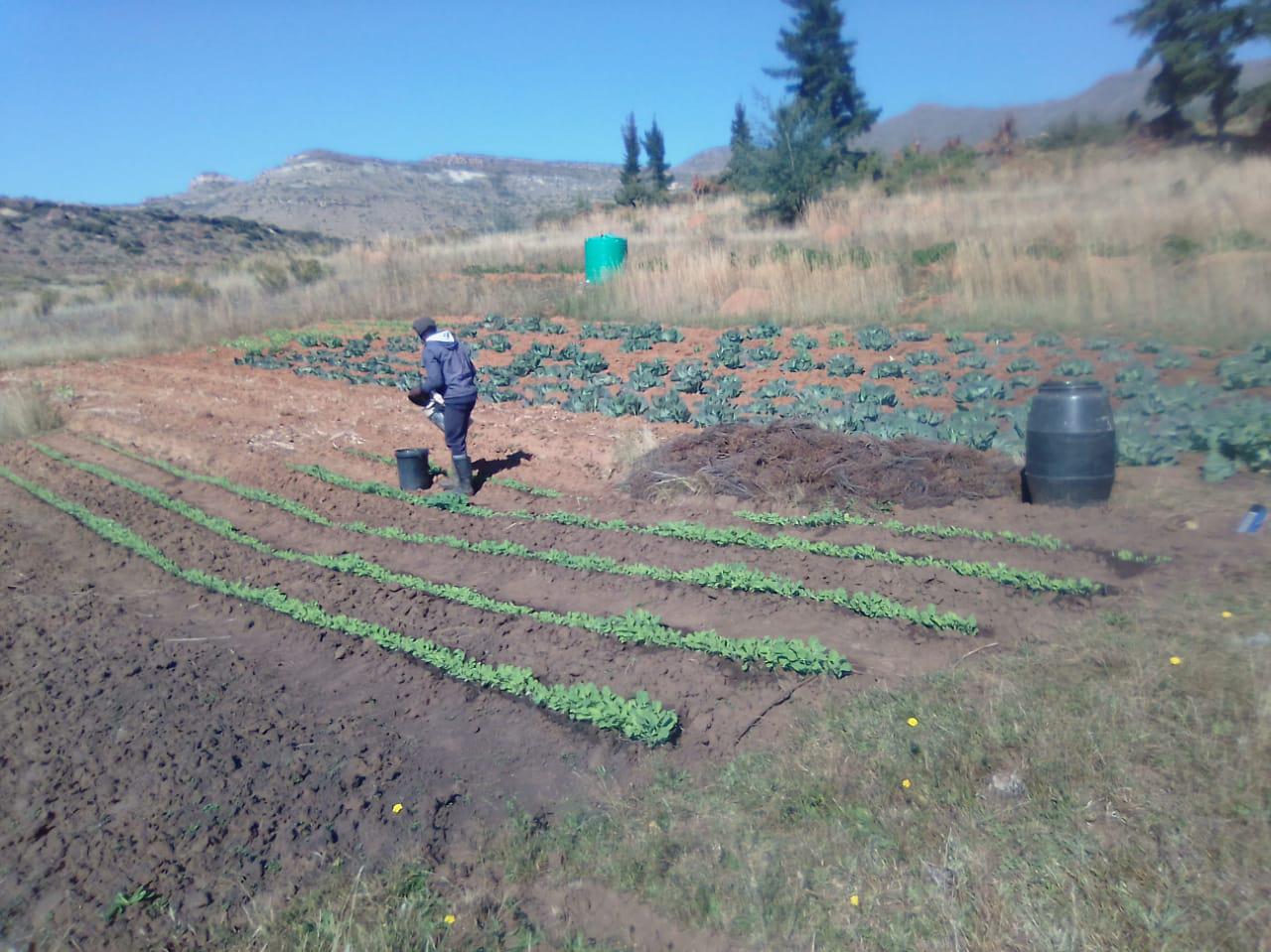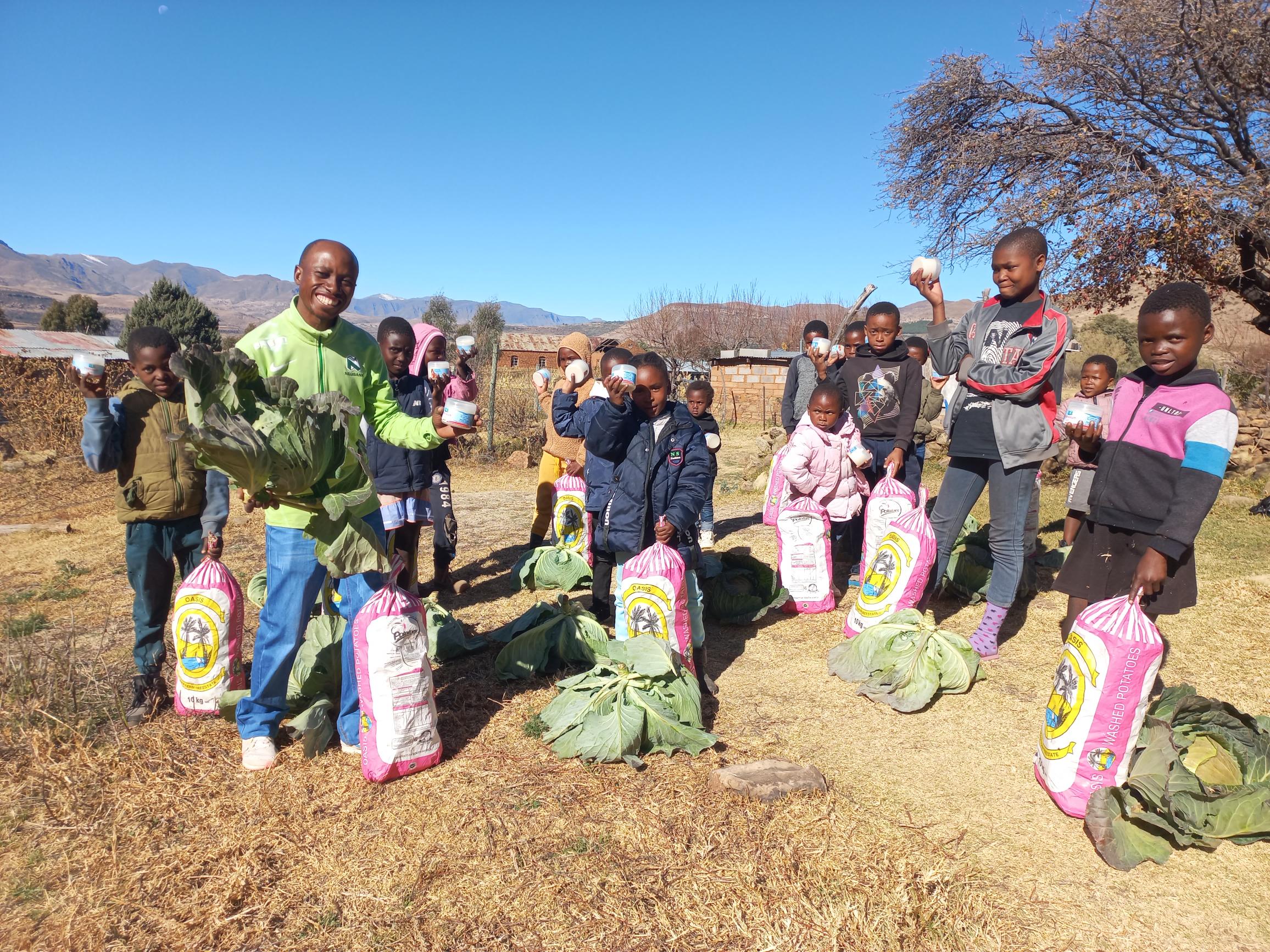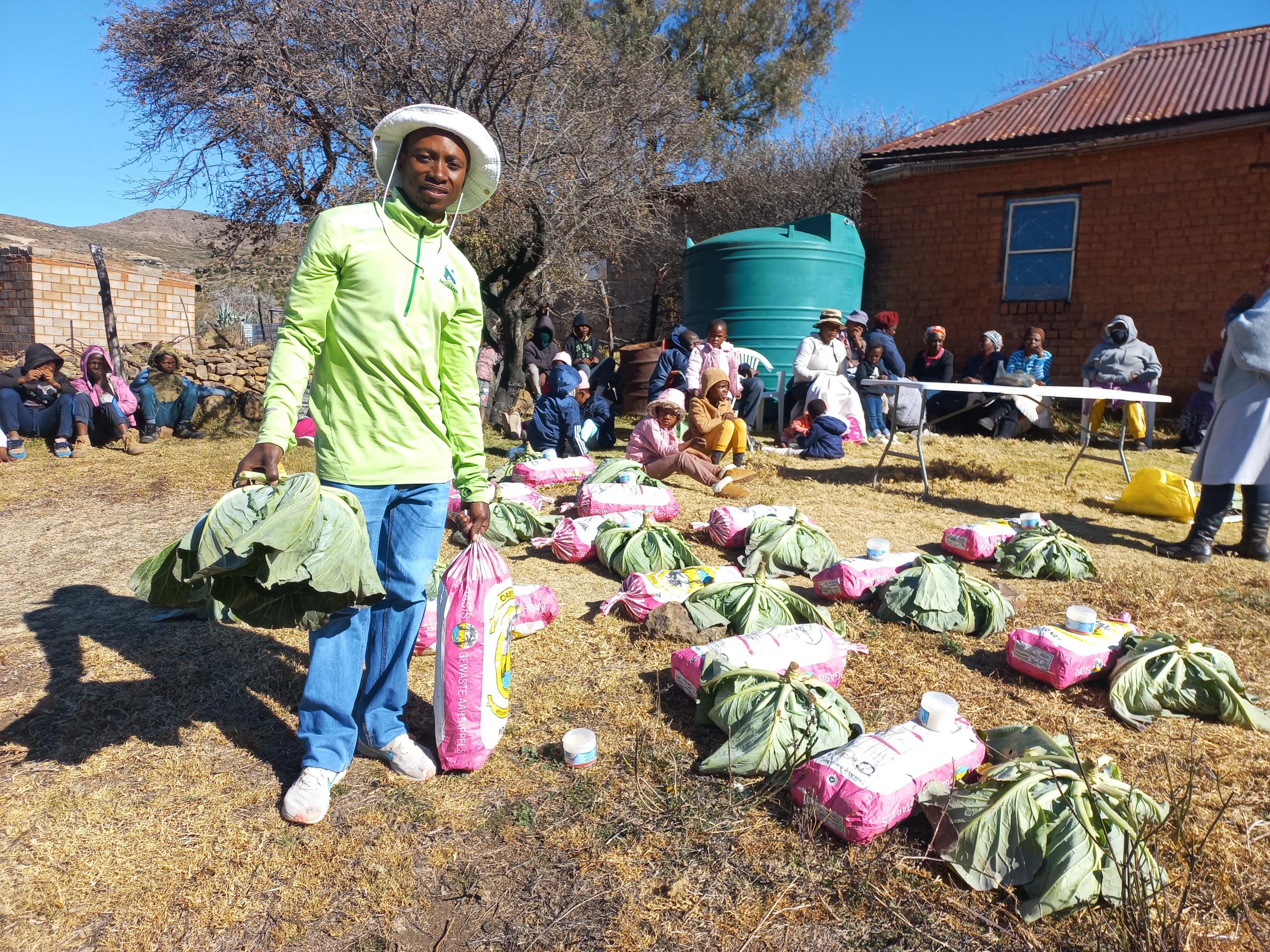Thabo Moitsepi's Journey from Sponsored Child to Community Hero Amid Lesotho's Food Insecurity

By: Tseliso Kalele, Community Development Facilitator, Lesotho
In the heart of Lesotho, where the harsh realities of hunger and unemployment have forced many to seek work across borders, a story of resilience and compassion emerges from the Pontseng community. This story centres around Thabo Moitsepi, a 33-year-old Mosotho man, whose actions embody the spirit of "paying it forward" in the face of a national food insecurity disaster.
Pontseng, like many communities within the Mokotjomela Area Programme, is predominantly composed of households headed by single parents or, in some cases, children themselves. The absence of many working-age adults, who have left for neighbouring countries in search of employment, has left a void that threatens the community's stability.
The situation in Pontseng, like many rural communities in Lesotho, has become dire due to the impacts of climate change. Crop failures from lack of rainfall have left many families struggling to put food on the table. The most vulnerable; children, the elderly, and those with chronic illnesses – are particularly at risk.
In households headed by single parents or grandparents, the struggle is even more acute. Many children go to school hungry, their ability to learn compromised by lack of nutrition. Elderly community members, often responsible for their grandchildren, skip meals to ensure the young ones have something to eat.
The drought has also led to a scarcity of clean water, increasing the risk of waterborne diseases. Many families are forced to choose between using their limited water for drinking or for basic hygiene, a decision no one should have to make. Local clinics report a rise in malnutrition cases, particularly among children under five. The community's resilience, already stretched thin by years of economic hardship, is now being tested to its limits.

Amidst these challenges, Thabo's story offers a glimmer of hope. He lives with his mother, his 7-year-old son Tsepo, and two nieces aged 3 and 12, whose mothers work in a neighbouring country. Following in his late father's footsteps, Thabo cultivates the family field, producing vegetables and corn for both commercial and household consumption.
Thabo is a beneficiary of multiple World Vision interventions in the Mokotjomela Area Programme aimed at graduating families out of poverty and instilling resilience in communities. He has participated in Livelihoods and Resilience and Empowered World View trainings and is a member of the Savings for Transformation group ‘Boloka Lerato Bophelo’, meaning ‘Protecting Love and Life) which specializes in small scale entrepreneurship.
On Monday, July 15, 2024, just days after the Lesotho government declared a food insecurity national disaster due to El Niño-induced drought, Thabo took a stand. Despite his own struggles to irrigate crops, the high cost of fertilizers and insecticides, and the responsibility of caring for his own family, he chose to extend a helping hand to the most vulnerable members of his community.

After harvesting what remained from his garden, Thabo invited 16 registered children to his home. "Today, I want to bring joy to these children as I give them one bag of potatoes, one head of cabbage, and Vaseline so they can eat and keep warm," he announced.
Thabo's actions were inspired by his own journey as a World Vision registered child in the 1990s. Recalling those days, he shared, "It was very difficult for my family to have food, clothes, and other necessities. World Vision came, and it was at that time when my family's life changed for the better as I gained self-esteem. Now, seeing the struggles of children in Mokotjomela due to food insecurity I felt compelled to act.”
The impact of his gesture was immediately apparent. Selloane, a 45-year-old caregiver responsible for three registered children between 8 and 14 years old, was moved to tears. "I really thank Mr. Thabo for this gift," she said, her voice thick with emotion. "This food is just what my family needed."
The ripple effect of Thabo's generosity extends beyond immediate food relief. By involving the children in the distribution process, he's teaching them the importance of community support and resilience. This hands-on experience may inspire the next generation to continue the cycle of giving, especially in times of crisis.

"I had a dream to put a smile on the face of a child who is going through the vulnerability challenges I went through," Thabo explained. "I really thank World Vision Lesotho for the initiatives they brought to us. They changed my life and that of my family."
Despite ongoing challenges, Thabo's story serves as a testament to the power of community-driven solutions in the face of national crises. It highlights how individuals, empowered by organizations like World Vision, can become catalysts for change in their communities.
As Lesotho continues to grapple with food insecurity, stories like Thabo's offer hope and a blueprint for grassroots action. They demonstrate that even in the face of adversity, the spirit of ubuntu – "I am because we are" – remains strong among the Basotho people.
Thabo understands that in times of crisis, even a small gesture of support can make a significant difference, potentially saving lives and certainly rekindling hope. His actions remind us all that the path to recovery and resilience requires entire communities working together, supporting each other through the tough times ahead.